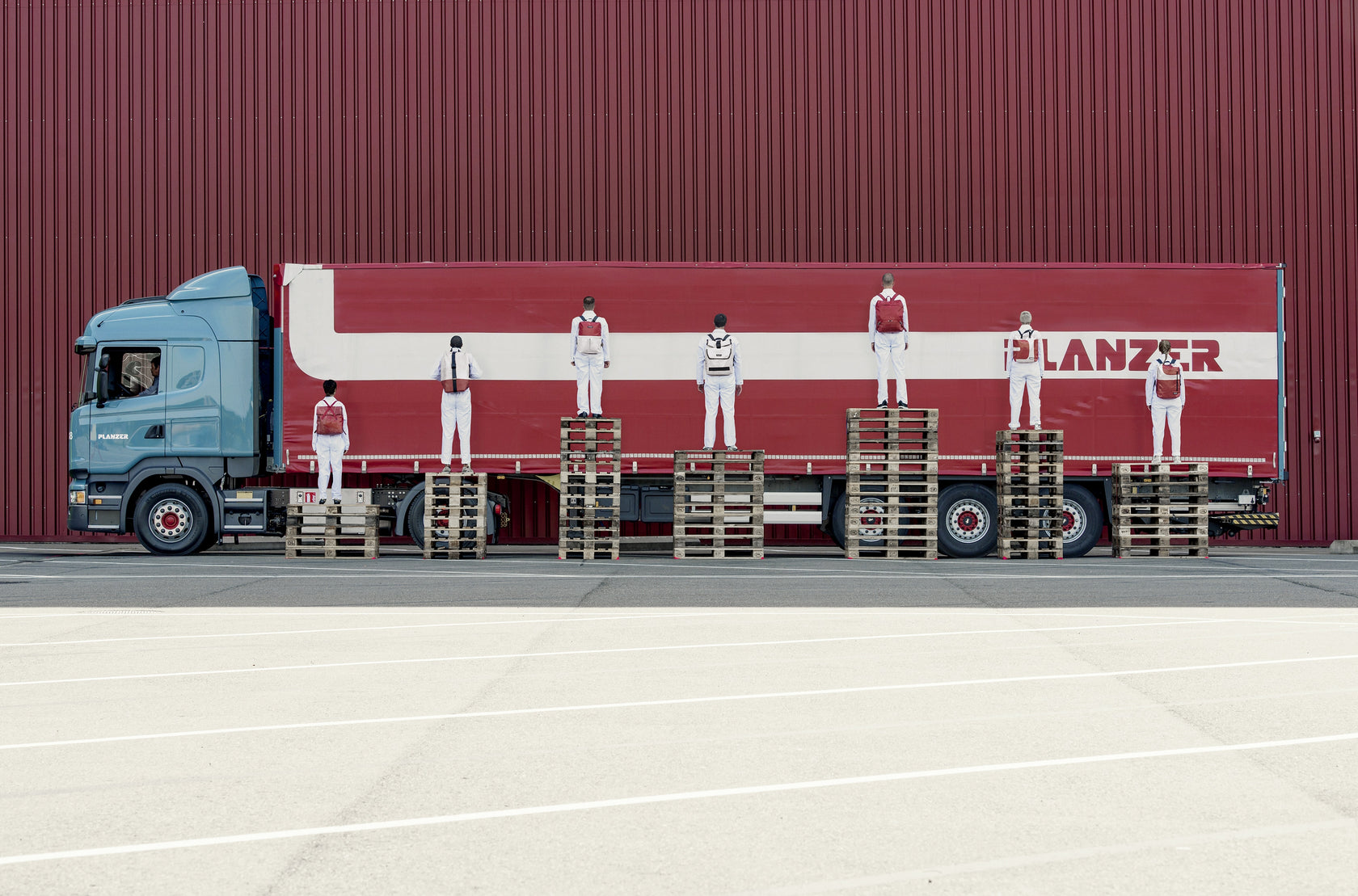The FREITAG Story
In 1993, graphic designers Markus and Daniel Freitag were looking for a functional, water-repellent and robust bag to hold their creative work. Inspired by the multicolored heavy traffic that rumbled through the Zurich transit intersection in front of their flat, they developed a messenger bag from used truck tarpaulins, discarded bicycle inner tubes and car seat belts. This is how the first FREITAG bags took shape in the living room of their shared apartment – each one recycled, each one unique.


With their innovation, the company inadvertently triggered a seismic event in the world of bag making. Its tremors have since made themselves felt in Zurich and the cities of Europe and spread all the way to Asia, making FREITAG the unofficial outfitter of all urban, bike-riding individualists. The first F13 TOP CAT messenger bag has since spawned a full range of over 50 different models for all your carrying needs: from smartphone and laptop sleeves via backpacks and on to handbags, shoppers and travel bags. And for some models, the discarded truck tarps are combined with other resource-saving materials, such as a textile made from 100%-recycled PET bottles or B-stock airbag material. Fast forward to today, the driving principle behind FREITAG has been to keep used materials in circulation for as long as possible. And for the future, there are even plans to close the cycles. Together with its partners in industry, the company has been working on the creation of a circular truck tarp since 2020. In 2023, FREITAG sent its first fully recyclable backpack into production; this will be available by the name of Mono[PA6] from spring 2024 onwards.
Today the products are available in 29 FREITAG Stores as well as at over 300 resellers around the world. In the FREITAG Online Store there’s an extensive choice of over 4000 unique products. FREITAG has been at home in its Noerd premises in Zurich Oerlikon since 2011. This is where a large part of the truck tarpaulins are taken apart, washed and cut to size.




In 2014, the bag-makers gave themselves a new raw material to play with: F-ABRIC. Developed in-house from the ground up, the rugged, completely compostable textiles are based on bast fibers that are produced using a minimum of resources within a 2500-kilometer radius of headquarters. F-ABRIC thus more than lives up to the FREITAG philosophy: We think and act in cycles.
FREITAG has not only committed to the circular economy but is also organized in circles: in 2016, the company, which still belongs to the Freitag brothers, abandoned the classical hierarchical structure and replaced it with Holacracy, a form of organization based on self-management.
